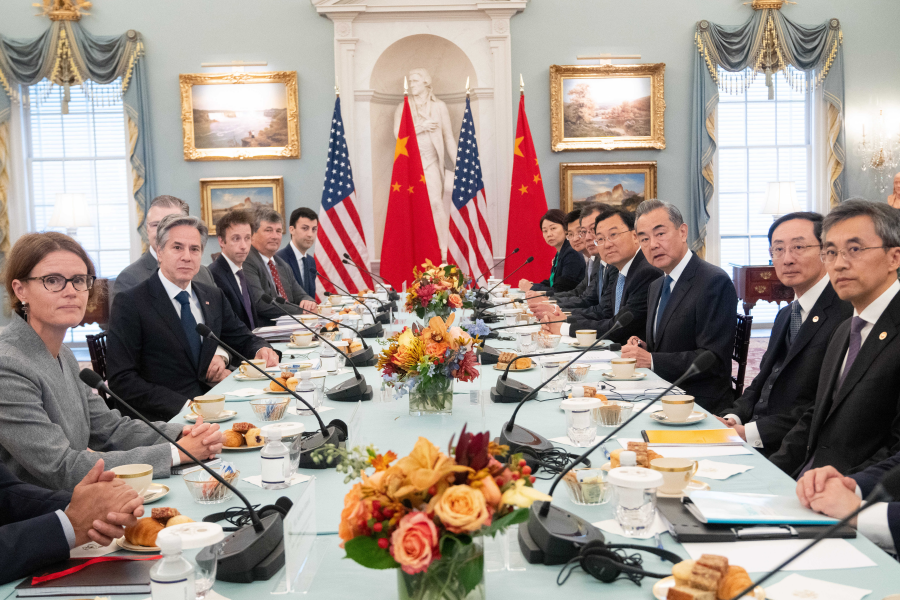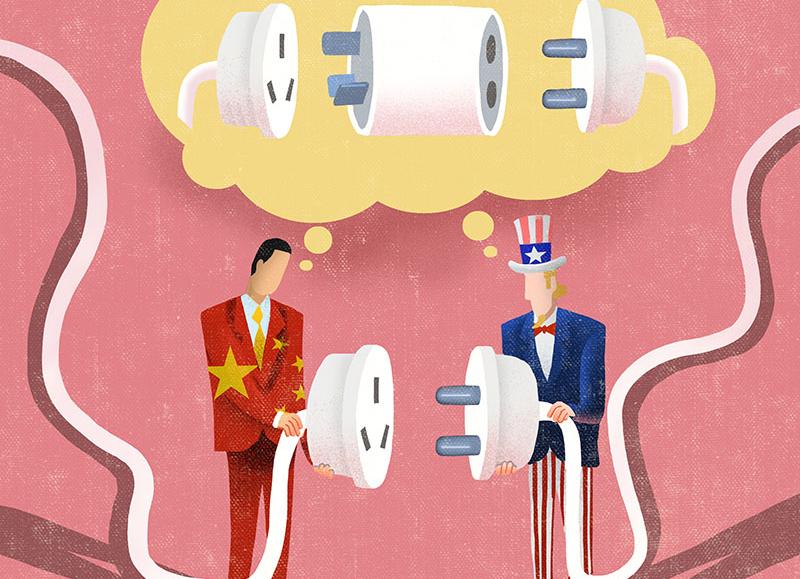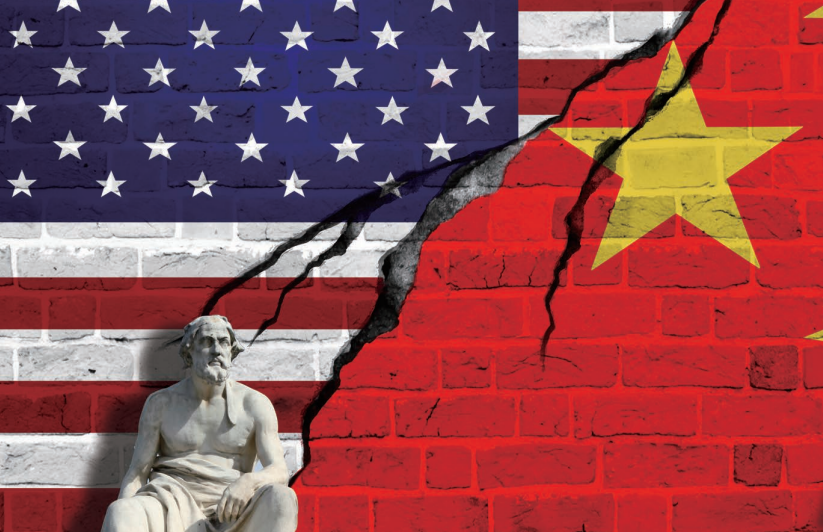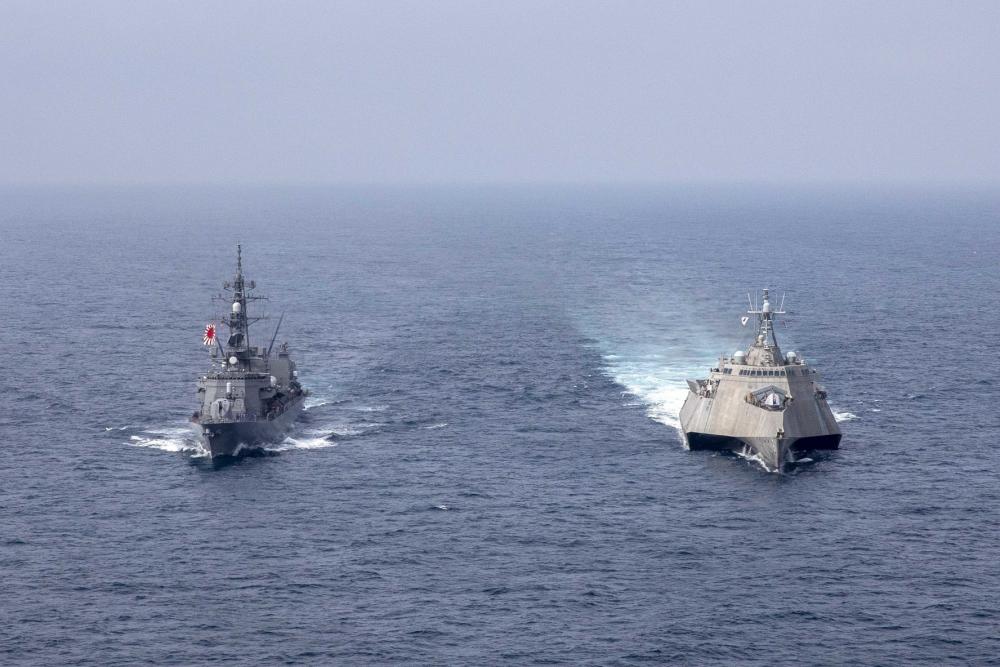
Li Zheng, Assistant Research Processor, China Institutes of Contemporary International Relations
Nov 03, 2023
In the wake of Chinese Foreign Minister Wang Yi’s visit to the U.S., windows of opportunity are opening. The constructive attitude on both sides is paying off as common ground is sought to anchor bilateral ties. This is a positive sign for the future.
Stephen Roach, Senior Fellow, Yale University
Oct 03, 2023
The debate over the difference between tactics and strategy is as rich as it is enduring. In his seminal 1996 article in the Harvard Business Review, Harvard’s Michael Porter tackled this issue head on. While his focus was business, his arguments can be applied much more broadly – including to today’s Sino-American rivalry.
Chen Jimin, Guest Researcher, Center for Peace and Development Studies, China Association for International Friendly Contact
Apr 24, 2023
China has no motive to engage in ideological competition or confrontation with the United States. Its defense of its own ideological foundation is a natural response to U.S. rhetoric. The so-called ideological competition is nothing but an American fabrication.

Zhang Tuosheng, Principal Researcher at Grandview Institution, and Academic Committee Member of Center for International Security and Strategy at Tsinghua University
Apr 14, 2023
Any easing of China-U.S. relations will have twists and turns, and material improvement is unlikely to come soon. But both sides can learn from America’s Cold War standoff with the USSR, when mechanisms were built that avoided war. That process can be followed again.
Li Yan, Director of President's Office, China Institutes of Contemporary International Relations
Mar 30, 2023
The U.S. Intelligence Community’s hyping the notion of an alleged China threat will continue to promote negative perceptions within American society. It caters to the mentality of some special interests that stand to gain from China-U.S. competition.

Tao Wenzhao, Honorary Member of the Chinese Academy of Social Sciences; Fellow, CASS Institute of American Studies
Mar 15, 2023
The U.S. and many of its allies rely heavily on the Chinese economy. Decoupling is not realistic and would only lead to long-term economic decline. On its current path — which is nothing if not clumsy — the Biden administration is only hurting the American people.
Zhang Monan, Deputy Director of Institute of American and European Studies, CCIEE
Mar 09, 2023
Industrial and supply chains have become the main theater of competition between China and the United States. America’s technology war will be deliberate, intense and long-term. For this reason, China must be strategically prepared for a protracted fight.

An Gang, Adjunct Fellow, Center for International Security and Strategy, Tsinghua University
Mar 07, 2023
It is crucial to prepare for all-out China-U.S. competition. The country that can best demonstrate wisdom, willpower and courage will have the advantage over time, and new cooperation models may alter the trajectory of history.
Wang Zhen, Professor and Deputy Director, Institute for International Relation Studies, Shanghai Academy of Social Sciences
Mar 01, 2023
Western advocates of a renewed standoff between great powers are blinded by their biases, as China’s rise goes beyond Western experience. At a time of deep economic interdependence and with weapons unimaginable in the past, who can guarantee that a confrontation would not escalate out of control?
Ma Xue, Associate Fellow, Institute of American Studies, China Institutes of Contemporary International Relations
Feb 01, 2023
America’s efforts to reduce reliance on Chinese supply chains may limit China’s economic options in the short term. But this is not sustainable. In the long term, the rise of the Chinese economy cannot be stopped.
Back to Top

- China-US Focus builds trust and understanding between the U.S. and China through open dialogue among thought leaders.
- Our Offerings
- Topics
- Videos
- Podcasts
- Columnists
- Research Reports
- Focus Digest
- Stay Connected
-
Thanks for signing up!
- Get the latest stories from China-US Focus weekly.